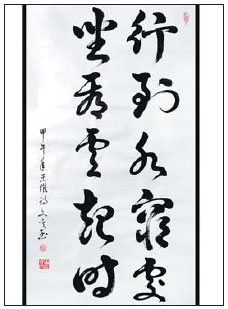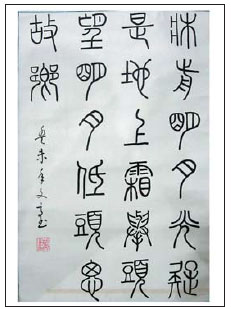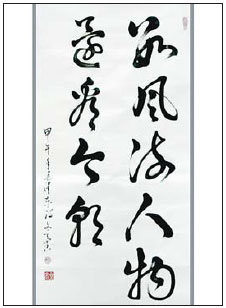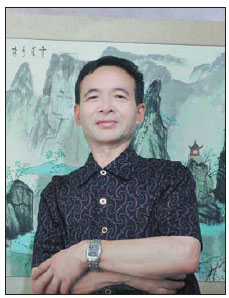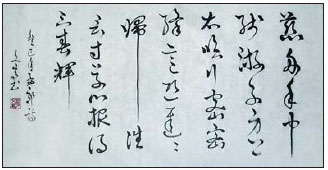Art changes life of self-taught painter
Passion and perseverance have taken Hu from rural fields to national awards, Zhuan Ti reports.
Art has literally changed the life of Hu Wengao, a 60-year-old selftaught painter in the city of Taizhou, Zhejiang province.
As a child, Hu showed strong interest in traditional Chinese arts, such as Chinese painting and calligraphy. However, growing up in a poor family, he couldn't afford even basic art materials, such as brushes and paper.
Refusing to be deterred, Hu made his own "brush" by rolling up rags and practiced calligraphy by using it to write with water on the dining table. When the table dried and the calligraphy disappeared, he started over, repeatedly practicing.
Due to his family's financial constraints, Hu left school when he was barely 13. However, he continued to focus on teaching himself art with even stronger persistence.
Unable to afford a professional teacher, Hu learned to draw figures from portrait painters on the streets in his hometown by observing them carefully.
"I paid great attention to what kind of brushes they used for certain purposes, and then practiced a lot on my own," Hu said.
Before long, he was able to paint figures and started painting portraits of the deceased in his hometown to make a living.
It was not an easy business, especially in the beginning, Hu said. Some people made excuses not to pay him, including claiming that his painting did not resemble its subject.
Gradually, Hu established a name as a portrait painter and became financially independent. He finally won the approval of his parents, who had been against his decision to become a painter.
As Hu became more popular in the town, he was sought out by many clients asking him to paint their portraits. He didn't charge some families who were too poor to afford the cost of portraits.
Wanting to make higher achievements in art, Hu began to teach himself other styles, such as landscapes and flower and bird paintings. He bought many art-related books and improved his techniques by imitating the works of masters featured in the books.
Hu registered with a correspondence college when he was in his late 30s and, for the next two years, was tutored via mail by renowned calligrapher Ouyang Zhongshi, and Yao Zhihua, a famous Chinese painter.
"The experience was very special for me," Hu said. "The teachers there gave me a lot of encouragement and my skills improved quickly during the period."
In recent years, Hu has focused on painting traditional landscapes.
"It's impossible for us to learn all things well. So we must focus on something that we really like," he said.
He has carefully studied paintings by masters such as Huang Binhong and Li Keran, who have influenced him greatly, Hu said.
He said inspiration is very important for his artistic creation.
"I paint very quickly when I have inspiration, which is generated by the right environment and mood. I would rather stop and wait when I don't have inspiration," he said, adding that it can take him a month to finish one piece of work.
Hu said improvements in technology, especially computers, made it easier to learn painting and calligraphy on his own.
After gradually earning respect in the Chinese art circle in recent years, Hu has more opportunities to talk with other artists around the country, which he said has also been beneficial.
Hu has earned many honors in recent years, including the title of "Famous Contemporary Artist" given jointly by the China National Culture Seminar and the Research Institute of Famous Chinese Calligraphers and Painters.
Hu's works are recommended as national gifts by the State Council, and many of his pieces have been collected by overseas collectors. He has also been invited to many art exchange events in countries including Japan and South Korea in recent years.
While he keeps progressing in his own career, Hu has also tried to help young people who are interested in art.
He has encouraged and tutored several young students who could not attend art schools, providing them with all the necessary materials for study for free.
"Their situation reminds me of my past experience. It is my pleasure to help those who are really interested in learning art," Hu said.
Contact the writer at zhuanti@chinadaily.com.cn. Beijing Jingbei Libo Cultural and Media Co contributed to the story.
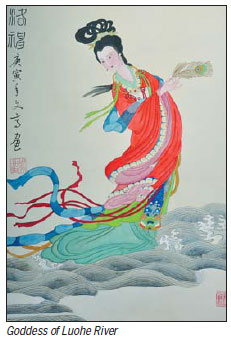
|
Calligraphy by Hu Wengao of two lines of a poem by Wang Wei. |
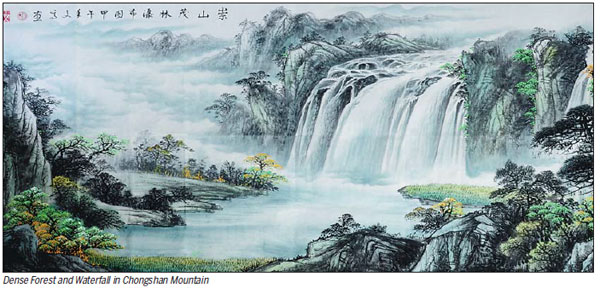
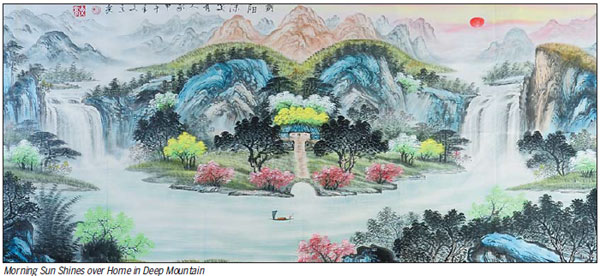
|
Calligraphy by Hu Wengao of Silent Night Thoughts, a poem by poet Li Bai. |
|
Calligraphy by Hu Wengao of a line from the poem Spring of Qinyuan-Snow, by Mao Zedong. |
|
Hu Wengao is a self-taught painter and calligrapher.Provided To China Daily |
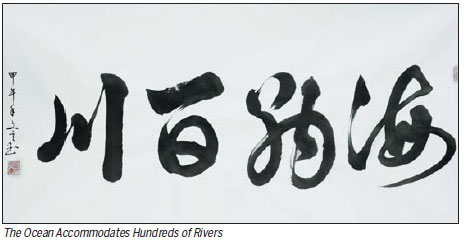
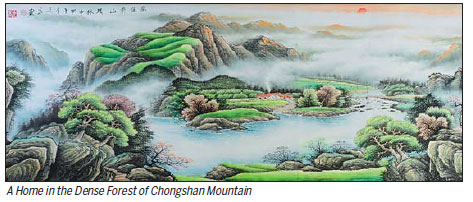
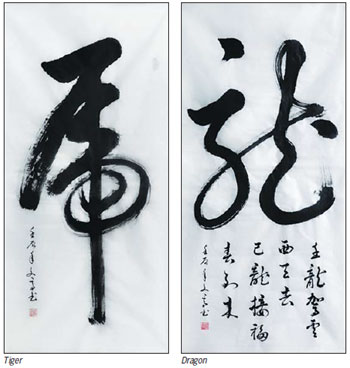
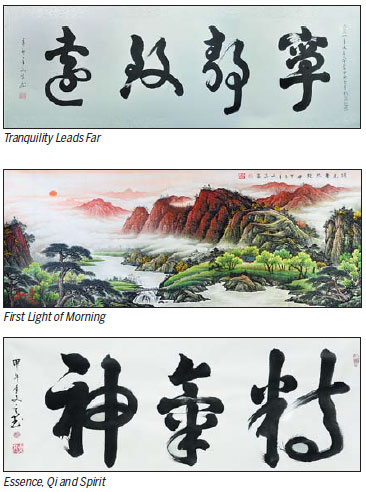
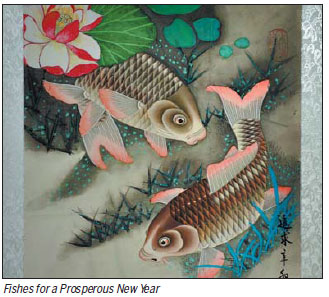
|
Calligraphy by Hu Wengao of A Traveler's Song by poet Meng JIao. |


